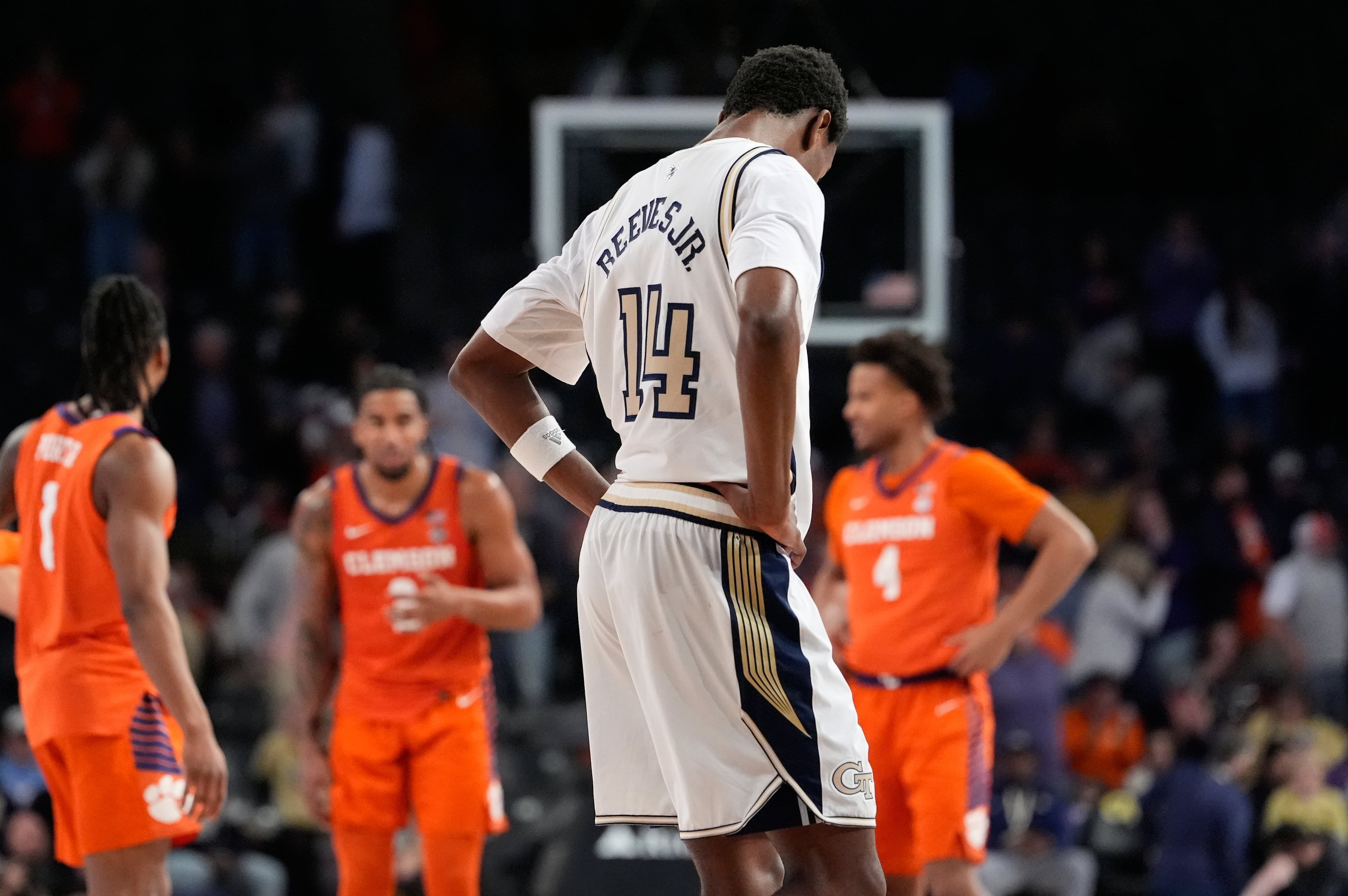Referee recalls Kenny Anderson’s shot at buzzer vs. Michigan State

John Clougherty retired from college basketball officiating as one of the most trusted referees in the game. His capacity to call games fairly and accurately resulted in his being selected to call 12 Final Fours.
It's with that record of accomplished service that he owned missing a call in one of the more memorable wins in Georgia Tech's basketball history – Kenny Anderson's shot at the buzzer that forced overtime in Tech's 1990 NCAA tournament win over Michigan State.
In an interview with the AJC in his first public comments about the game, Clougherty said of the Spartans that “they got the short end of the stick that night.”
It was an iconic moment of Tech's Final Four run. With the Jackets down 75-73 in a Southeast Regional semifinal game at the Louisiana Superdome, Anderson hit a shot near the 3-point arc as time expired. Originally ruled a 3-point basket, it was changed to a two-point field goal that sent the game to overtime, where the Jackets ousted the region's No. 1 seed 81-80 on March 23, 1990.
Even without Clougherty’s confirmation, a close inspection of the video could reasonably lead to the conclusion that Anderson didn’t release the shot in time. It was the conclusion of many media covering the game, for instance.
But, apparently, the NCAA never gave official judgement. Thirty years later, Clougherty shared his recall of the game’s ending and then, after that, a call he received from NCAA coordinator of officials Hank Nichols.
With five seconds to play in regulation, Michigan State led 75-73 and the Spartans’ Steve Smith was on the free-throw line for a one-and-one. Smith missed the first, leaving the door open for Tech.
Anderson raced upcourt with the ball, and Clougherty followed the action as the trail official. Then Anderson let go of the shot from the left wing as time expired. Clougherty judged that it was a 3-pointer and that it had been released in time to give the Jackets a 76-75 win, setting off an on-court celebration.
Clougherty recalled not hearing the buzzer, and the Superdome acoustics were known for being poor.
However, as Clougherty recalled, fellow official Charles Range rushed to tell him – accurately – that Anderson’s foot was on the line, rendering it a two-point field goal to send the game to overtime.
“And I say, ‘Charlie, are you sure?’ ” Cloughery recalled. “He says, ‘I’m absolutely sure.’ Now, we don’t have (replay) review at this point in time. And he says, ‘I’m absolutely sure.’ ”
The 3-pointer was changed to a 2-point field goal, meaning the game was going to overtime. Two of Cremins’ assistants, Sherman Dillard and Jimmy Hebron, had to be retrieved from the locker room. An AJC article reported that Michigan State coach Jud Heathcote asked for a video replay to determine if the ball was released in time, but was told that rules did not permit it.
In the extra period, the Jackets prevailed on Dennis Scott’s game-winning basket with eight seconds remaining. Clougherty said that, after the game, he got a call from Nichols.
“He says, ‘We’ve got an issue,’ ” Clougherty said. “I say, ‘You’re going to tell me his foot was behind the line.’ He said, ‘Oh, no, John. His foot was on the line.’ He says, ‘The replay shows that he still has the ball when things go to zero.’ I say, ‘Oh, yeah, we do have a problem.’ I said, ‘We definitely do have a problem.’ ”
Use of video replays to assist on buzzer-beaters wouldn’t become part of the NCAA rulebook until 2000. Michigan State, the Big Ten champion, had indeed gotten the short end of the stick.
To that point, Clougherty had worked five consecutive Final Fours, 1985-89, and would later work another seven, assignments earned on merit. But he didn’t go in 1990, and Clougherty didn’t have trouble figuring out why.
“They had every right to keep me from the Final Four,” Clougherty said. “The NCAA doesn’t like controversy and I gave them enough controversy to make it easy for them.”
In defense of Clougherty and his crew, it was a tough call. The Superdome acoustics apparently weren’t of much help. Officials also had to spot where Anderson took the shot while tracking the clock. They also didn’t have another aid that referees now enjoy, the red LED lights on the backboard that activate when time expires. And, as the adage goes, one call doesn’t decide a game. Smith had a chance to put the Spartans up by a game-clinching four points but missed the front end of the one-and-one. Further, Michigan State had a chance to win in overtime and, in fact, led 79-78 on a pair of free throws with 23 seconds remaining before Scott’s game-winner in the lane.
Regardless, it was a mistake, and Clougherty humbly didn’t hide from it.
“You do the best you can and you hope it works, but sometimes there’s been mistakes,” he said.
Any March Madness participant knows it’s necessary to both have a great team and to get some luck to survive the narrowing brackets. Thirty years ago, on its way to its first-ever Final Four berth, Tech had both.




